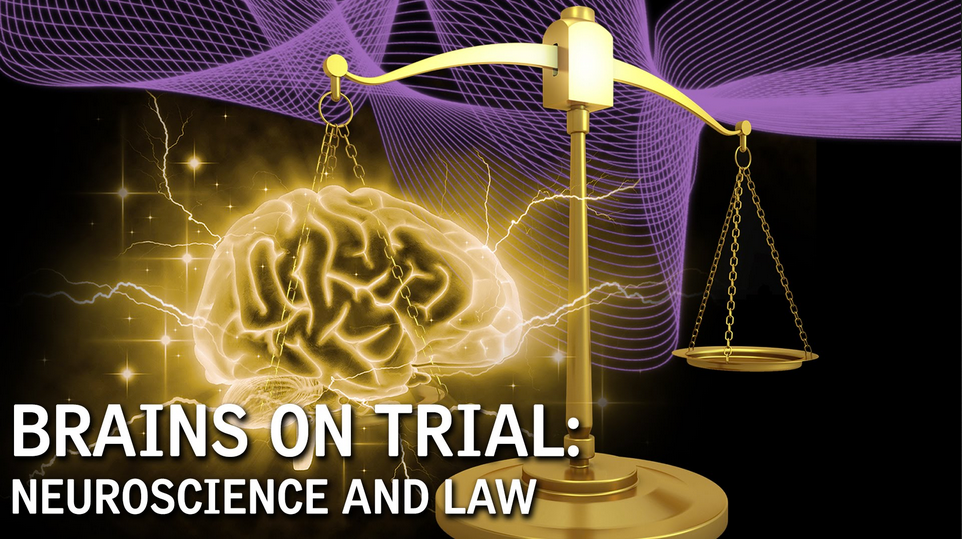 In this article of the Atlantic, neuroscientist and author, David Eagleman, examines our criminal-justice system and the brain and advocates for a more “biologically-informed jurisprudence.” Why? “Acts cannot be understood separately from the biology of the actors, says Engelman, ” and this recognition has legal implications.” This (among other obvious reasons) is why neuroscience should be taken seriously. According to Eagleman:
In this article of the Atlantic, neuroscientist and author, David Eagleman, examines our criminal-justice system and the brain and advocates for a more “biologically-informed jurisprudence.” Why? “Acts cannot be understood separately from the biology of the actors, says Engelman, ” and this recognition has legal implications.” This (among other obvious reasons) is why neuroscience should be taken seriously. According to Eagleman:
Neuroscience is beginning to touch on questions that were once only in the domain of philosophers and psychologists, questions about how people make decisions and the degree to which those decisions are truly “free.” These are not idle questions. Ultimately, they will shape the future of legal theory and create a more biologically informed jurisprudence. — David Eagleman
Consider aberrant behaviors and violent acts. As our understanding of the human brain improves, claims Eagleman, juries are increasingly challenged with deeply problematic questions. In the case of murder, for example:
- Should the discovery of damage or an ailment (such as a tumor) to the brain modify our feelings about the harm done to victims by the perpetrator?
- Should it affect the sentence we find appropriate for him/her?
- Does the tumor change the degree to which we should consider the killings “his/her fault”?
- Alternatively, what are the dangers of concluding that individuals who kill others (due to the effects of a tumor, for example) are free of guilt and, thus, not deserving of punishment (in the same way that someone without such a condition might be punishment-worthy)?
- The list goes on…
All of these philosophically weighty queries ask us to consider our conception(s) of justice, responsibility, free-will/choice, punishment theory, rights, fairness, equality and blameworthiness. This last one — i.e., blameworthiness (which of course is intimately connected responsibility and free-will/choice) — is particularly problematic for Eagleman.
When a criminal stands in front of the judge’s bench today, the legal system wants to know whether he is blameworthy. Was it his fault, or his biology’s fault?
I submit that this is the wrong question to be asking. The choices we make are inseparably yoked to our neural circuitry, and therefore we have no meaningful way to tease the two apart. The more we learn, the more the seemingly simple concept of blameworthiness becomes complicated, and the more the foundations of our legal system are strained. — David Eagleman
Eagleman’s appeal is ultimately an attempt to provide a new model of criminal justice that takes a more scientific or biologically-informed approach to sentencing (and hence, punishment and reform).
As brain science improves, we will better understand that people exist along continua of capabilities, rather than in simplistic categories. And we will be better able to tailor sentencing and rehabilitation for the individual, rather than maintain the pretense that all brains respond identically to complex challenges and that all people therefore deserve the same punishments.
Some people wonder whether it’s unfair to take a scientific approach to sentencing—after all, where’s the humanity in that? But what’s the alternative? As it stands now, ugly people receive longer sentences than attractive people; psychiatrists have no capacity to guess which sex offenders will re-offend; and our prisons are overcrowded with drug addicts and the mentally ill, both of whom could be better helped by rehabilitation. So is current sentencing really superior to a scientifically informed approach? — David Eagleman
As its often the case with complicated matters….this article will likely raise as many questions as it does insights. But it is definitely worth considering. To read this article in its entirety, click here!
